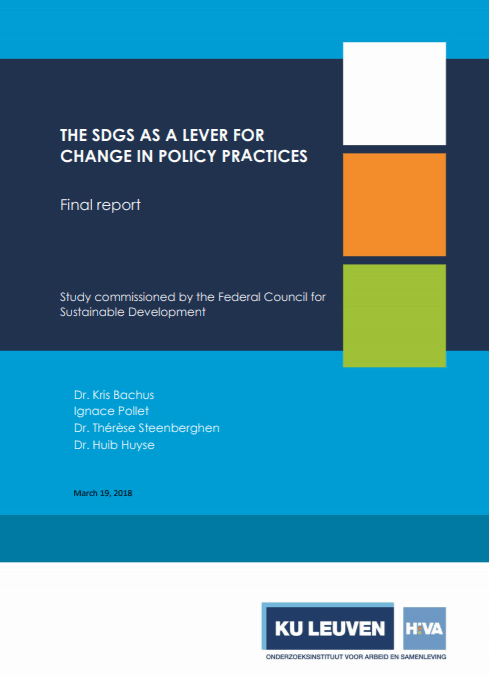At the request of the Federal Council for Sustainable Development Belgium, researchers from the university of Leuven conducted a study on how the Sustainable Development Goals (SDGs) have led to changes in policy practices. The study addressed cases in five countries (Germany, the Netherlands, Finland, Czech Republic and Switzerland) and compares their respective situation with Belgium.
Conclusions of the study
The study c oncluded that Germany is the first country to address spillover effects: German policymakers take into account the impact of their policies on other countries. In the Netherlands, the main conclusion was that local governments get a lot of freedom to implement the SDGs, but that this isn’t sufficient to achieve the SDGs by 2030. While Finland stood out for their efforts to include civil society and business, Switzerland has created an indicator system to systematically assess the way countries follow up on the SDGs. Czech Republic is hoping to get the SDGs implemented into the policies of all government divisions.
oncluded that Germany is the first country to address spillover effects: German policymakers take into account the impact of their policies on other countries. In the Netherlands, the main conclusion was that local governments get a lot of freedom to implement the SDGs, but that this isn’t sufficient to achieve the SDGs by 2030. While Finland stood out for their efforts to include civil society and business, Switzerland has created an indicator system to systematically assess the way countries follow up on the SDGs. Czech Republic is hoping to get the SDGs implemented into the policies of all government divisions.
In Belgium, the coordination of SDG implementation is mostly in hands of the regional governments. Civil society and the private sector have also contributed to SDG-negotiations, but their influence was limited due to the complex and fragmented Belgian federal structure. Belgium is currently working on a list of indicators to monitor the SDGs. Finally, the study concluded that in Belgium, more efforts are needed to get everyone involved with the SDGs.
Read the report here.

